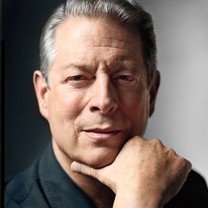Two other demographic realities should also command priority attention: The continued urbanization of the world's population should be seen as an opportunity to integrate sustainability into the design and construction of low-carbon, low-energy buildings, the use of sustainable architecture and design to make urban spaces more efficient and productive, and the redesign of urban transportation systems to minimize both energy use and pollution flows. And second, the aging of populations in the advanced economies -- and in some emerging markets, like China -- should be seen as an opportunity for the redesign of health strategies and income support programs in order to take into account the higher dependency ratios that threaten the viability of using payroll taxes as the principal source of funding for these programs.
With respect to the revolution in the life sciences, we should place priority on the development of safeguards against unwise permanent alterations in the human gene pool. Now that we have become the principal agents of evolution, it is crucially important to recognize that the pursuit of short-term goals through human modification can be dangerously inconsistent with the long-term best interests of the human species. As yet, however, we have not developed adequate criteria -- much less decision-making protocols -- for use in guiding such decisions. We must do so quickly.
Similarly, the dominance of the profit motive and corporate power in decisions about the genetic modification of animals and plants- particularly those that end up in the food supply-are beginning to create unwise risks. Commonsense procedures to analyze these risks according to standards that are based on the protection of the long-term public interest are urgently needed.
The continued advance of technological development will bring many blessings, but human values must be preserved as we evaluate the deployment and use of powerful new technologies. Some advances warrant caution and careful oversight: the proliferation of nanomaterials, synthetic life-forms, and surveillance drones are examples of new technologies rife with promise and potential, but in need of review and safeguards.
There are already several reckless practices that should be immediately stopped: the sale of deadly weapons to groups throughout the world; the use of antibiotics as a livestock growth stimulant; drilling for oil in the vulnerable Arctic Ocean; the dominance of stock market trading by supercomputers with algorithms optimized for high-speed, high-frequency trades that create volatility and risk of market disruptions; and utterly insane proposals for blocking sunlight from reaching the Earth as a strategy to offset the trapping of heat by ever-mounting levels of global warming pollution. All of these represent examples of muddled and dangerous thinking. All should be seen as test cases for whether or not we have the will, determination, and stamina to create a future worthy of the next generations.
Finally, the world community desperately needs leadership that is based on the deepest human values. Though this book is addressed to readers in the world at large, it is intended to carry a special and urgent message to the citizens of the United States of America, which remains the only nation capable of providing the kind of global leadership needed.
For that reason, and for the pride that Americans ought to feel in what the United States has represented to humanity for more than two centuries, it is crucial to halt the degradation and decline of America's commitment to a future in which human dignity is cherished and human values are protected and advanced. Two priority goals for those who wish to take action are limiting the role of money in politics and reforming outdated and obfuscatory legislative rules that allow a small minority to halt legislative action in the U.S. Senate.
Human civilization has reached a fork in the road we have long traveled. One of two paths must be chosen. Both lead us into the unknown. But one leads toward the destruction of the climate balance on which we depend, the depletion of irreplaceable resources that sustain us, the degradation of uniquely human values, and the possibility that civilization as we know it would come to an end. The other leads to the future.
Excerpted from "The Future: Six Drivers of Global Change" by Al Gore. Published by Random House. Copyright 2013. Reprinted with permission of the publisher.
(Note: You can view every article as one long page if you sign up as an Advocate Member, or higher).





